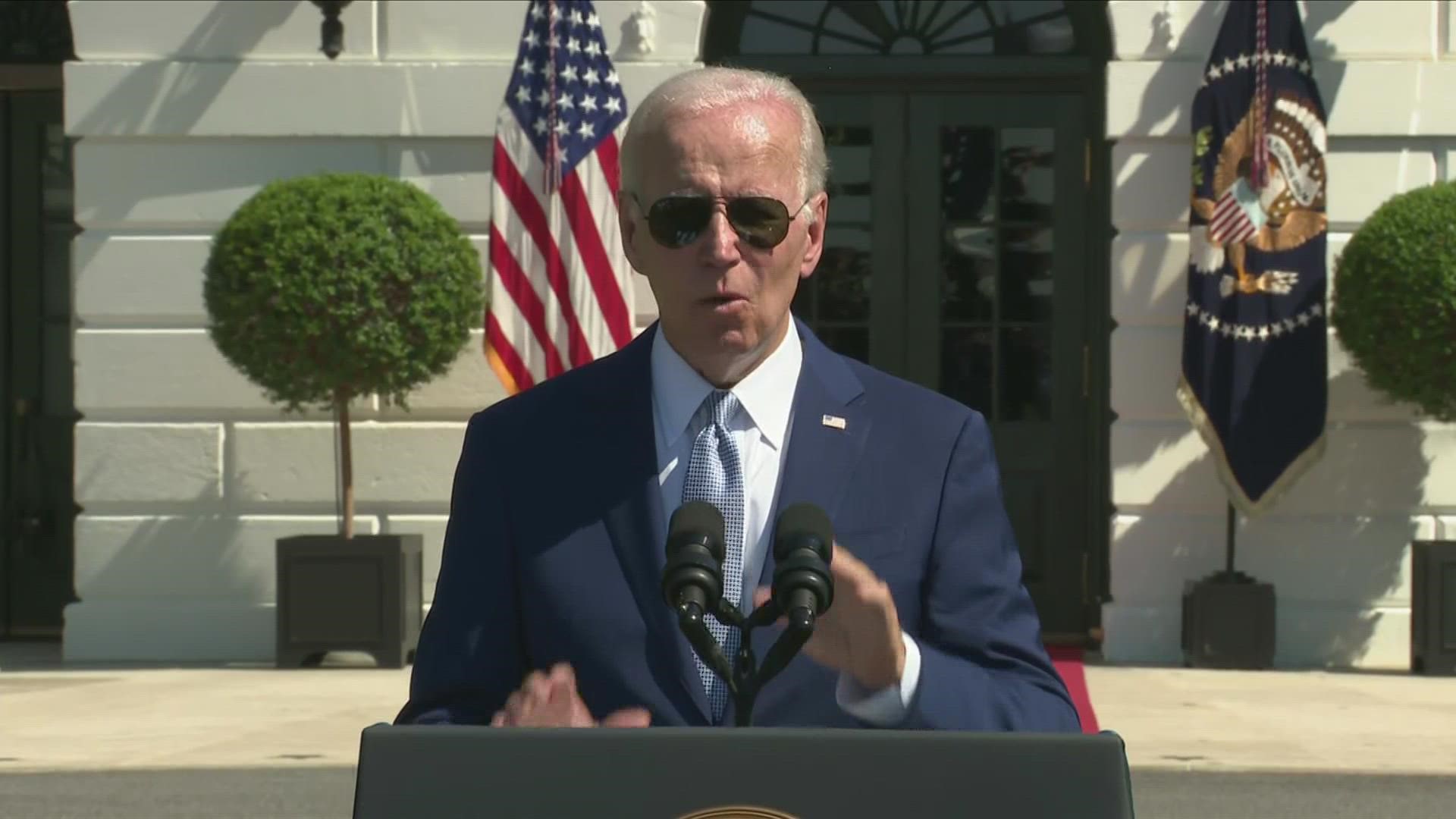WASHINGTON — President Joe Biden is preparing to sign a $280 billion bipartisan bill to boost domestic high-tech manufacturing, part of his administration's push to boost U.S. competitiveness over China.
The Rose Garden ceremony on Tuesday will include lawmakers, union officials, local politicians and business leaders, the White House said, as the president looks to highlight a new law that will incentivize investments in the American semiconductor industry in an effort to ease U.S. reliance on overseas supply chains for critical, cutting-edge goods.
“We are going to invest it in America,” Biden said Friday. “We’re going to make it in America. We’re going to win the economic competition of the 21st century in America.”
The White House said Micron is announcing a $40 billion plan to boost domestic manufacturing of memory chips, and Qualcomm and GlobalFoundries are announcing a $4.2 billion expansion of an upstate New York chip plant.
The bill provides about $52 billion in grants and other incentives for the semiconductor industry as well as a 25% tax credit for those companies that build chip plants in the U.S. Supporters say those incentives are necessary to compete with other nations that are also spending billions of dollars to lure manufacturers.
The pandemic has underscored how much the United States relies on semiconductor manufacturers abroad to provide the chips used in automobiles, computers, appliances and weapons systems. The Biden administration has been warning lawmakers they need to act before leaving for their August recess to ensure the companies invest in U.S. fabs instead of building the plants elsewhere.
Overall, the bill would increase U.S. deficits by about $79 billion over the next 10 years, according to the Congressional Budget Office. The bill also authorizes about $200 billion to advance high-tech research in the U.S. over the coming decade. Congress must approve that funding as part of future spending bills and the CBO did not include that money in its deficit projection.
Critics have likened the spending to “corporate welfare" and have said the money would be better spent on other priorities or not at all. Sen. Bernie Sanders, I-Vt., said he doesn’t hear from people about the need to help the semiconductor industry. Voters talk to him about climate change, gun safety, preserving a woman’s right to an abortion and boosting Social Security benefits, to name just a few.
“Not too many people that I can recall — I have been all over this country — say: ‘Bernie, you go back there and you get the job done, and you give enormously profitable corporations, which pay outrageous compensation packages to their CEOs, billions and billions of dollars in corporate welfare,’” Sanders said.

